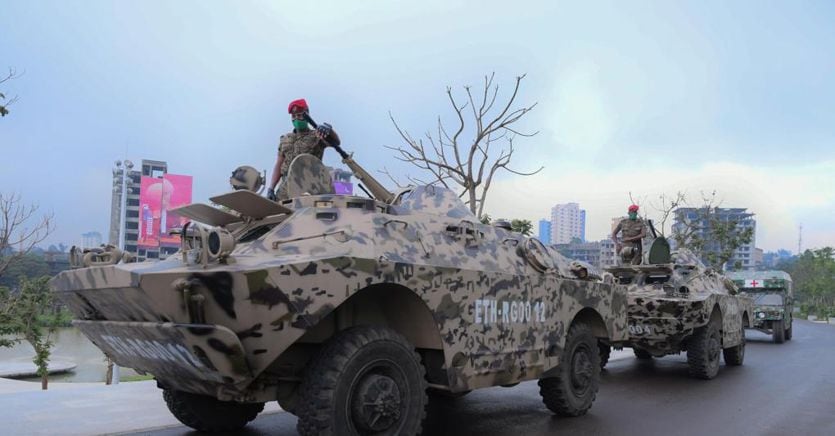The situation is getting hotter in Ethiopia, the country in the Horn of Africa in the midst of a civil war between the rebels in the northern region of Tigray and the Addis Ababa government. Prime Minister Abiy Ahmed, Nobel Peace Prize winner in 2019, declared a six-month state of emergency in response to the advance of Tigrinya troops towards the capital, calling on citizens to “defend” the city from the entry of separatist troops . It is the sharpest escalation of a conflict that erupted in autumn 2020, when Abiy launched the offensive against the region to respond to attacks by Tigrinya forces at the Sero military base.
In the plans of Abiy, fresh from re-election after the vote in July 2021, the tensions would have had to be resolved within a few weeks. The blitz resulted in an internal war that has been dragging on for over a year and now risks causing the capital of the second most populous country in Africa (115 million inhabitants), seat of the African Union and hub, to plunge into chaos for good. economic and commercial of prime importance for the Continent. A report published on November 3 by the United Nations denounced the “extreme brutality” committed by both sides in the conflict, without exaggerating on the greater responsibilities. Abuses perpetrated include torture of prisoners, gang rapes and ethnic-based arrests.
How did this crisis come about?
The Tigrinya advance towards Addis Ababa is the latest chapter in a war that has made all the inter-ethnic tensions in Ethiopia re-emerge, undermining the ambitions of national unity embodied by Abiy himself. The premier, who came to power in 2018, dissolved the ruling coalition between the main ethnic groups that had ruled the country for three decades: Ethiopian People’s Revolutionary Democratic Front, a political bloc that saw the party among its major forces. Tigrinya (Tigray People’s Liberation Front, Tplf). Abiy’s choice to dissolve the party and give life to a formation that went beyond the logic of ethnic division did not meet the favor of the TPFL, expression of a region that affects 6% of the Ethiopian population (about 7 million people in 2020) but it enjoys a notable influence in the national equilibrium.
Tensions between the capital and the rebels in the north had already fermented in the face of the second choice to hold elections for the Tigrinya council of state in September 2020, an obviously unwelcome tear to Abiy and the central power of Addis Ababa. The spark of the ongoing war was the attacks on Ethiopian military bases in October 2020, the episode that (officially) prompted Abiy to react by sending troops north. The military operation also involved contingents arriving from Eritrea, the neighboring country and former adversary of Ethiopia itself, as well as troops from the Ahamara region.
The blitz predicted by Abiy has degenerated into the ongoing war. In June 2021, eight months after the start of hostilities, the Tigrinya forces regained “100%” control of the capital Macallè. In the same month, the Addis Ababa government completely isolated the region, blocking access to commercial goods and humanitarian aid, producing what the UN report classifies as “a severe socio-economic impact on the region”. According to data dating back to October, at least 500 thousand people are reduced to hunger, while the UN itself has had to stop the transport of humanitarian goods to Macallè.
